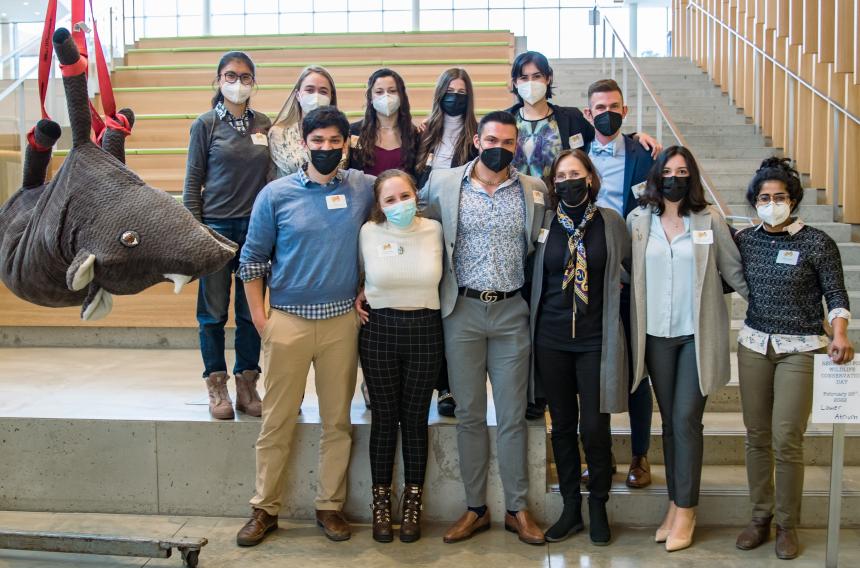In the News

Video
November 01, 2022
“This is why we do what we do,” says Center Director Dr. Steve Osofsky, who took this video of an elephant herd this spring while working with local partners in the Kavango Zambezi Transfrontier Conservation Area in southern Africa.

August 29, 2022
Cornell and regional partners have, over many years of collaboration, developed innovative ways to resolve conflicts at the wildlife-livestock interface in the interest of advancing transfrontier conservation and sustainable economic development.

Video
August 12, 2022
“This is why we do what we do,” says Cornell Wildlife Health Center director Dr. Steve Osofsky, who took this video of an elephant herd this spring while working with local partners in the Kavango Zambezi Transfrontier Conservation Area in southern Africa.

March 21, 2022
Cornell’s Zoo and Wildlife Society hosted its first Wildlife Conservation Day Feb. 26, a one-day symposium devoted to education and training for students with an interest in non-domestic species.

October 28, 2021
While global attention is of course currently focused on COVID-19 and other diseases that jump from animals to people, people and domestic animals can also spread disease to wildlife, notes the Cornell Wildlife Health Center's Dr. Steve Osofsky.

August 20, 2021
KAZA Ten Years On: World’s largest terrestrial transfrontier conservation area requires true habitat connectivity, as explained in a letter to Science by Cornell’s Dr. Steve Osofsky and WWF Namibia’s Dr. Russell Taylor.

Announcement
July 29, 2021
Our Beyond Fences program in southern Africa has been awarded a three-year grant from WWF to help facilitate greater collaboration between the wildlife and livestock sectors to resolve previously intractable conflicts between animal disease regulatory needs and transfrontier conservation area objectives.

May 21, 2021
The third Friday of May is Endangered Species Day. Primarily as a result of human activities, our planet’s biodiversity is shrinking at an unprecedented rate. The Cornell Wildlife Health Center is proud to support a diverse range of species and ecosystems through our work.

January 13, 2021
Cornell Wildlife Health Center donor Sue Holt describes how her special connection to southern Africa led her to support our Beyond Fences program and make a significant difference in the well-being of people and wildlife in the region.

December 09, 2020
The Cornell University College of Veterinary Medicine has released its 2020 Annual Report, detailing its progress in its key strategic priority areas, including "Advances in Animal, Human and Ecosystem Health."
